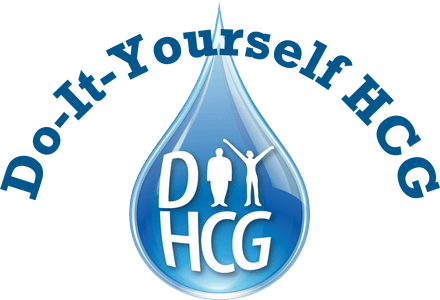How is the HCG Protocol Different From Any Other Diet Out There?
 You've probably tried a diet or two in your life. Perhaps it was a fad diet, such as the South Beach Diet or the grapefruit diet, or maybe you kept a pen and paper handy to count the calories in all of your daily food choices. Chances are, you lost a little — or maybe even a lot — of weight, but it probably came right back on soon after you reverted to your normal eating habits. Such is the curse of most diets: You suffer through a period of restricted eating, only to end up weighing the same as — or more than — your starting weight when it's all said and done.
You've probably tried a diet or two in your life. Perhaps it was a fad diet, such as the South Beach Diet or the grapefruit diet, or maybe you kept a pen and paper handy to count the calories in all of your daily food choices. Chances are, you lost a little — or maybe even a lot — of weight, but it probably came right back on soon after you reverted to your normal eating habits. Such is the curse of most diets: You suffer through a period of restricted eating, only to end up weighing the same as — or more than — your starting weight when it's all said and done.
How a Normal Diet Works
Dr. Simeons, the creator of the HCG protocol and author of Pounds and Inches: A New Approach to Obesity, explains that when an obese individual goes on a diet, the body burns the normal fat stores first, and then it'll give up the structural fat. Meanwhile, the fat that's locked in storage persists and is only burned as fuel when the normal and structural fat stores are depleted. Dr. Simeons notes that usually, by this time, the dieter has gone back to eating normally due to the weakness, hunger, and fatigue that usually result from a restrictive diet.
The Effect of HCG on the Body
HCG enables you to lose the abnormal body fat that's in storage without compromising your normal or structural fat, which is essential for good health and wellbeing. Dr. Simeons explains that this is why pregnant women who are sick during their first trimester still have enough nutrients to fuel the growth of the baby: About 1,500 to 4,000 calories' worth of nutrient-dense abnormal fat reserves are dissolved into the bloodstream every day.
How the HCG Protocol is Different from Other Diets
HCG unlocks abnormal fat reserves, and this is what your body uses as fuel during the HCG Diet phase. Although you're consuming just 500 calories per day, your body is consuming up to 4,000 calories in abnormal fat, and for this reason, hunger isn't an issue during the HCG phase of the protocol. Under any other circumstances, consuming just 500 calories a day would quickly render you malnourished, tired, and haggard-looking.
If you do find that you're hungry while you're on the protocol, it's essential to look back through your notes to determine what may be causing it. In many cases, added sugar or hidden oils may be the culprit, or you may be neglecting to follow the protocol to the letter, which is essential for success. In other cases, you may have lost all of your abnormal fat, and now your body is hungry because it's not getting all those extra calories. In this case, Dr. Simeons recommends increasing your caloric intake to 800 to 1,000 per day until the end of the phase. Keep in mind that quitting the HCG protocol before the end of the required 23-day minimum, even if you've lost all the weight you need to lose, will lead to you regaining the weight you lost because your body needs that much time to reset your metabolism.
Setting a New Weight Point and Revving Up Your Base Metabolism
The HCG protocol not only leads to weight loss, but it also serves to re-set your normal weight point so that your body stays within a healthy range once the protocol is complete and you return to eating normally. It also gives your system a break from processing unhealthy foods, and this may lead the hypothalamus to function more normally, precluding the rapid gaining back of weight lost once the protocol is over. The food you are allowed to eat while on this diet is delicious and healthy, real food — not processed and full of chemicals.
Eating Healthy Foods
The food you are allowed to eat while on the HCG Diet is delicious and healthy, real food — not processed and full of chemicals. Eating healthy foods while dieting will teach you how to eat for life when the diet is over and help you to maintain your weight.
